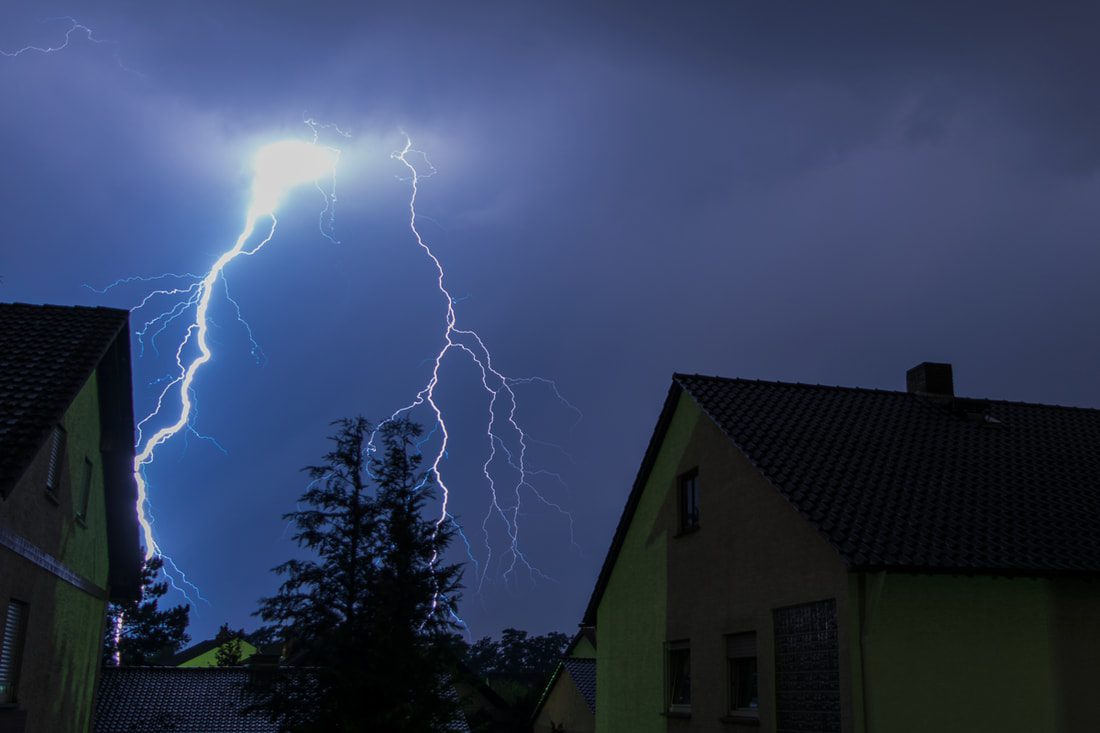While immediate damage to shingles, siding, or other parts of your home’s exterior due to a lightning strike is of note, yet, the two major dangers are these: home fire and electric surge.
Damage to expensive home electronics due to lightning-induced power surges can be a devastating loss. And since today’s electrical systems in homes are very compact and interconnected, it’s easy for damage to the electrical system to occur as well. Even more difficult to recover from is a house fire that destroys all or a major portion of your home.
Both of these risks – and much more, are covered by a standard home insurance policy. Lightning causes hundreds of millions of damage to US property each year, with the average lightning-related incident incurring well over $7,000. That alone makes a quality homeowners’ policy a virtual necessity.
How Homeowners Insurance Helps Protect Against Lightning
There are several components of homeowners insurance that are relevant to lightning damage.
First, there is the basic main dwelling coverage. Then there’s detached structure coverage that can cover your garage, sheds, and more. Also, personal property insurance will pay for you to replace or repair damaged electronics, furniture, or other possessions you keep in your home that were affected by the lightning strike.
Finally, loss of use (additional living expenses) coverage comes in to pay for hotel tabs, eating out, transportation, and other expenses incurred because you are forced out of your home while awaiting the completion of repairs or reconstruction.
What You Can Do Now To Reduce The Risk Of A Strike
Aside from just getting homeowners insurance or increasing your coverage limits, you can do several other things to reduce the risk of a lightning strike or the loss you might incur should one occur.
Number one, take a detailed inventory of your covered in-home possessions. Take photographs, video clips, and notes. Keep receipts if you have them. Write down the value and replacement value of each item. This helps you get the full benefit of personal property coverage in the aftermath of a home lightning strike.
Also, consider installing a lightning protection system. This may mean lightning rods at strategic locations, accompanying grounding cables, high-performance surge protectors, power outage protectors, and more. Fire protection equipment like extinguishers, fire walls, and sprinklers will also help.
Florida has a large number of severe thunder and lightning storms, aside from tornadoes and hurricanes, every year. Ensure your homeowners insurance will adequately cover you in the event a bolt of lightning does hit your home and do everything within your power to protect your property. By reducing risks, you, your property, and your family will be safer and you may also qualify for a discount on your premiums.
To learn more about how homeowners insurance can protect you from lightning and all that lightning could potentially do to your property, or for a free quote, contact Flagler County Insurance Agency today.
